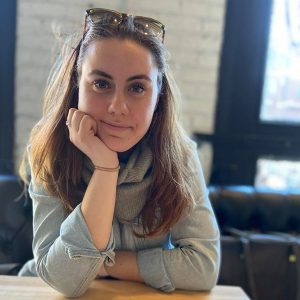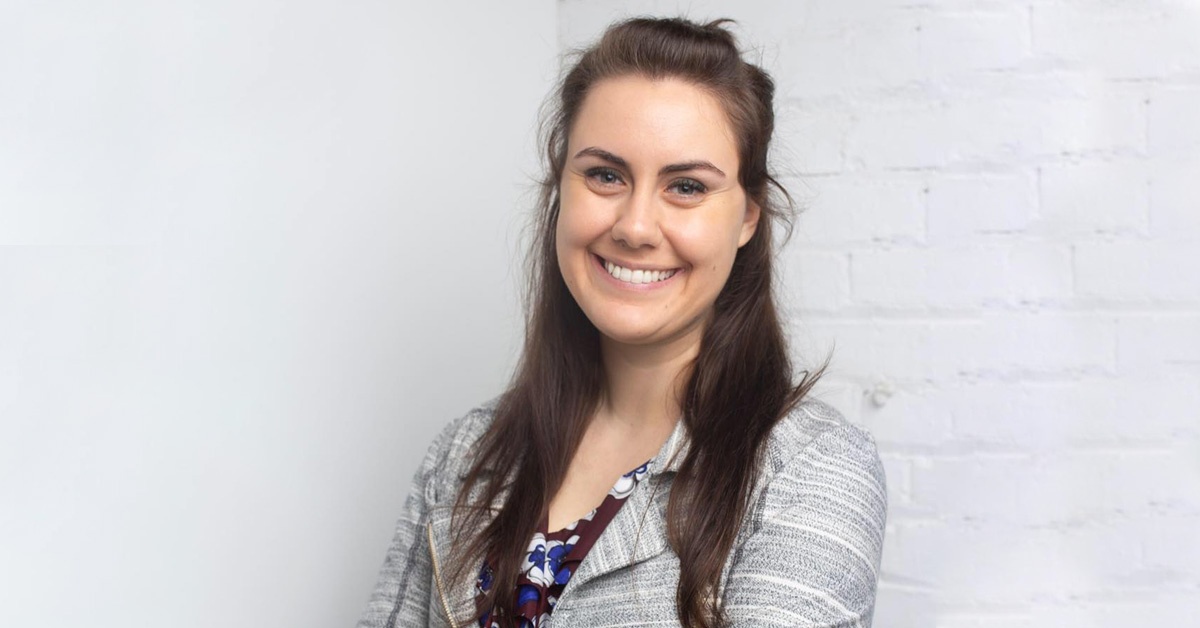Dahlia Maxon is an Epidemiology MPH student at the University of Minnesota School of Public Health. She is passionate about pandemic response and has been focused on contributing her skills and expertise to the fight against COVID-19. Learn more about her perspective as a public health student by reading her responses to the questions below.
If a close friend asked you why you’re studying public health, what would you tell them?
[Dahlia] I was drawn to study public health by the interconnectedness of its various disciplines and the endless possibilities the field has to offer for people who want to make a positive impact on the health of all people and communities.

How has COVID-19 affected your life?
[Dahlia] The COVID-19 pandemic is an unprecedented global health issue and brings to light many challenges that will have lasting effects in the time to come. With no immunity, we are all vulnerable to a potentially serious infection, which directly affects our loved ones and all those around us. The COVID-19 pandemic tests the strength of our health care systems and providers, our scientists, our politicians, and ultimately who we are as human beings.
How are you coping with COVID-19?
[Dahlia] I spend as much time as possible outside. I also journal and meditate daily to clear my head and find peace when I am feeling overwhelmed. Things become more manageable if you bring yourself back to the present moment when you notice your mind starts to run. While social distancing, I plan to declutter my living space so when things start to return to normal, it will feel like I left unnecessary things behind and have a fresh start.
In what ways are you working on or responding to the COVID-19 outbreak?
[Dahlia] Working in the Emerging Infections Program at the Minnesota Department of Health (MDH), I have been working on many tasks for the COVID-19 response. In the beginning, I would pick up specimens and bring them to the Public Health Lab for testing when we had persons under investigation. As the outbreak continued to grow, I worked on the public hotlines answering calls from all over Minnesota about anything and everything related to COVID-19. Then, I learned how to contact trace, which involves interviewing and monitoring individuals to collect information about their exposure and any symptoms they experience, which essentially helps us track the spread of the disease. Today, my main responsibilities are releasing cases from isolation and case investigations. Case investigation is the process of completing an in-depth interview regarding the patient’s symptoms, travel history, contact with other individuals, underlying health conditions, and other relevant information for surveillance. For releasing patients from isolation, I follow-up with cases who were hospitalized and screen them for two criteria: have they been fever-free for at least 72 hours without needing to take fever-reducing medication, and has it been at least 7 days since symptom onset and are they feeling improvement in their symptoms? If patients meet these two criteria, then I explain that we will no longer be monitoring them and they do not have any restrictions on activities or are required to be in isolation going forward.
What have you learned about yourself through this experience?
[Dahlia] The one thing I have learned about myself while working on COVID-19 is that as much as I love collecting and working with data, I really enjoy the education and advocacy side that public health has to offer. We are public servants and at the end of the day, the people are what matter most.
What is the first thing you plan to do once this is over and things are ‘back to normal’?
[Dahlia] I cannot wait to go out to eat and sit on a patio in the evening sun surrounded by people!
Do you think COVID-19 will make more people (students) interested in public health?
[Dahlia] I truly believe that COVID-19 will make more students and people interested in public health. I think this pandemic really brought to light how much the field does for everyone around the world and the need for cooperation and empathy in conjunction with science. In my personal life, I have had students approach me about my experience in epidemiology since COVID-19 began in the United States, which is incredibly rewarding and exciting.

